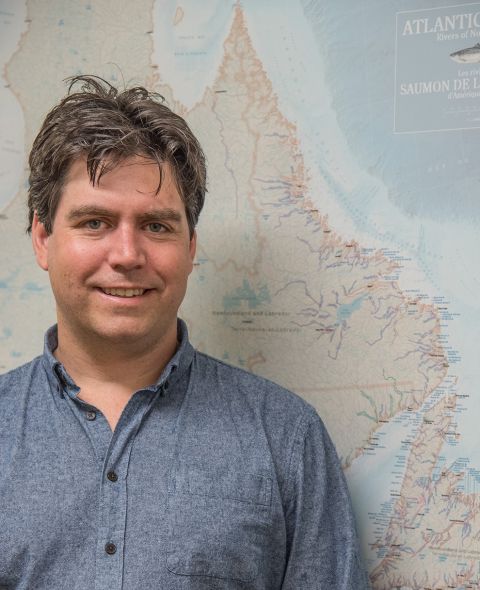Neville Crabbe, of the Atlantic Salmon Federation, acknowledges the cottage owners should have been consulted earlier.
But he says it’s critical that the smallmouth bass are eradicated from the lake this fall.
He points out some of the fish have already made their way to the river.
“They are voracious and they out compete trout and salmon,” said Crabbe. “I don’t think there’s any question about what the impact would be of those fish establishing themselves in the Miramichi.”
Crabbe says tens of thousands of people living throughout the Miramichi watershed depend on the health of the Atlantic salmon population.
Other groups supporting the rotenone plan include the North Shore Micmac District Council, and the Miramichi Salmon Federation.
Crabbe says the final decision on whether to restock the lake has not been made and the salmon groups want to take “some direction” from the cottage owners on the issue.
EIA or no EIA?
He said many of the dead fish are expected to fall to the bottom of the lake where they will become nutrients for insects and invertebrates.
He says the plan is to collect and dispose of those fish that are within reach.
The groups plan to amend their application to use the rotenone to include the treatment of a stretch of as much as ten kilometres of the Miramichi River itself downstream from Miramichi lake.
A spokesperson for New Brunswick’s Department of Environment says an EIA is not required for the treatment of the lake because it would result in a “net benefit” in preserving Atlantic salmon and American eel, two species that are at risk.
The Department is waiting for the amended rotenone application to determine if an EIA will be required for the plan to use the fish killer in the Miramichi River.
